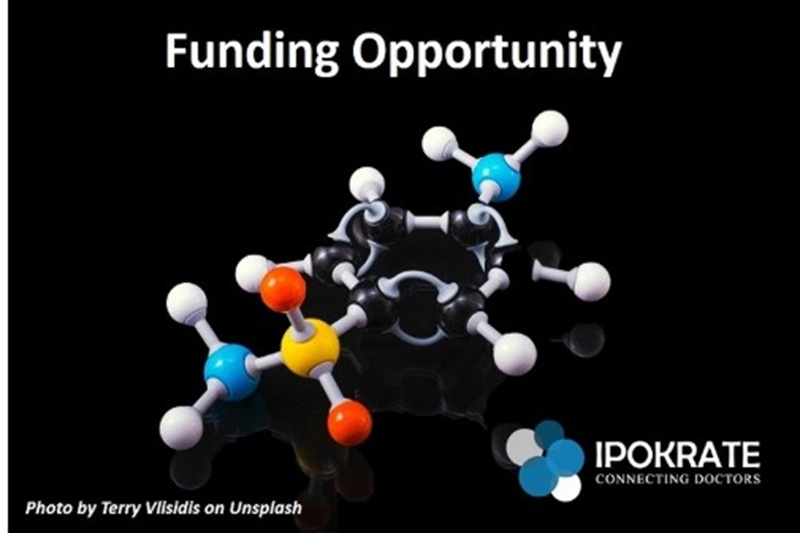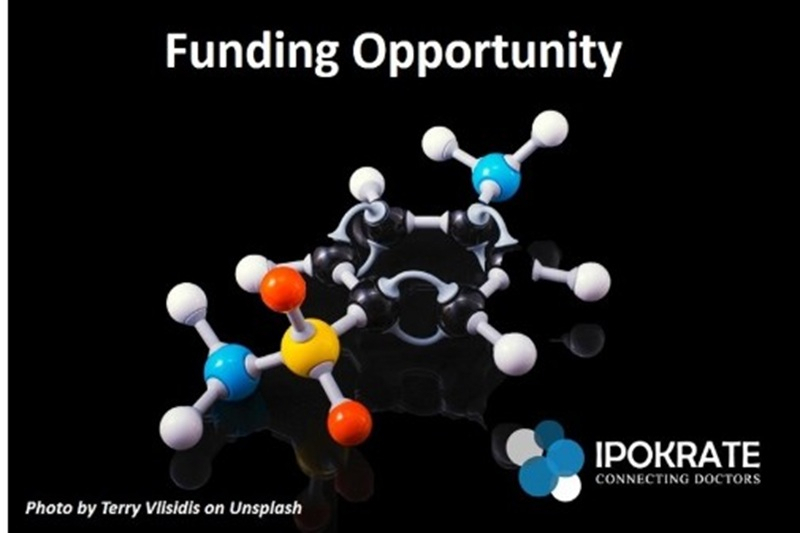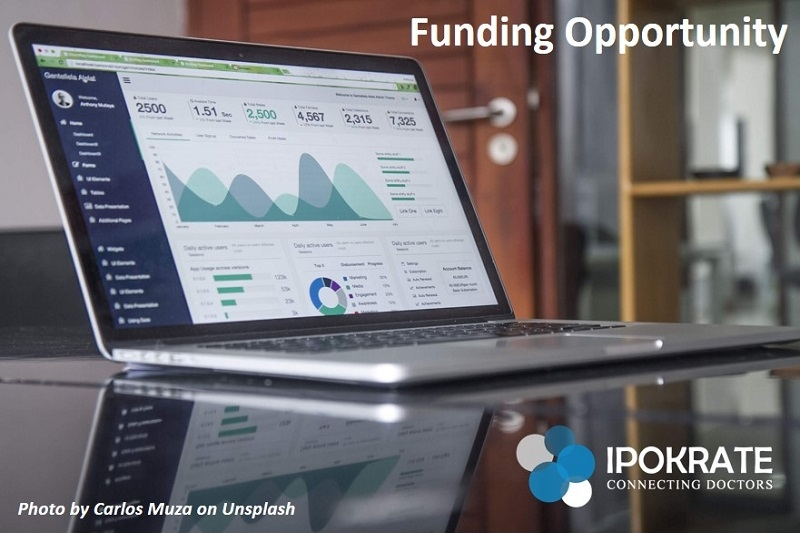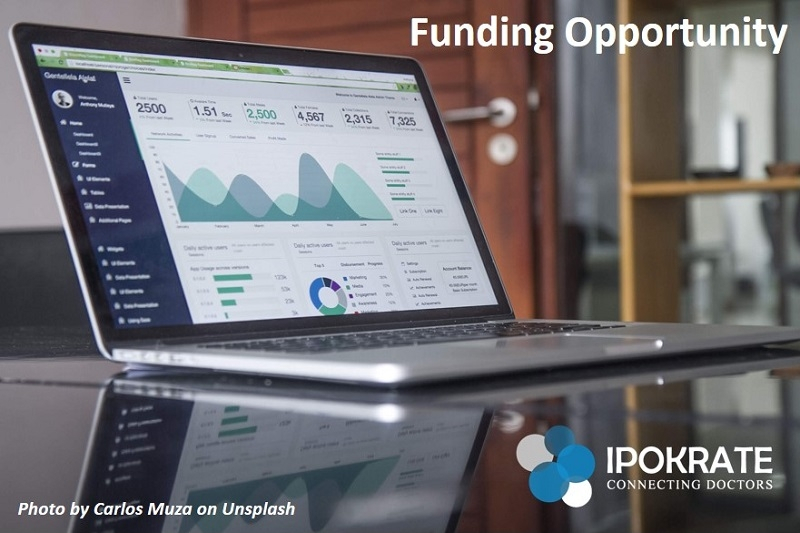Newspapers are one of the main tool where information are released and widely spread over the globe. Some of them are oriented to what is happening over the medial field, the different experimental work still ongoing and the recent discoveries released to the community aiming to enhance the health of the human being.
IPOKRATE's role is to select these relevant newspaper articles from trusted sites and well known sources and automaticaly will be provided to your smartphone. Also, Ipokrate platform will share with you regularly their analysis over the medical concerns highliting their impact on the world community health.
Become a member and we will keep you up-to-date of the latest medical news.
Through this NOFO, the NCI encourages the submission
of exploratory/ developmental research grant (R21)
applications that focus on different aspects of cancer
control by modifying behavior, screening, and
understanding etiologic factors contributing to the
development of cancer, and developing ways to control
cancer.
The purpose of this NOFO is to encourage applications
seeking to develop the next generation of brain
stimulation devices for treating mental health disorders.
Applications are encouraged that will either 1) develop
novel brain stimulation devices or 2) significantly
enhance, by means of hardware/software
improvements, the effectiveness of brain stimulation
devices that are U.S. Food and Drug Administration
(FDA)-approved or cleared.
This NOFO invites Exploratory/ Developmental Research
Grant (R21) applications that propose to study the
ethical, legal and social implications (ELSI) of human
genetic or genomic research. Applications may propose
studies using either single or mixed methods, that break
new ground, extend previous discoveries in new
directions, or develop preliminary data in preparation for
larger studies.
The National Cancer Institute (NCI) invites applications
for support of investigator-initiated clinical trials related
to the programmatic interests of the NCI Division of
Cancer Prevention and/or the NCI Division of Cancer
Control and Population Sciences that have the potential
to reduce the burden of cancer through improvements in
early detection, screening, prevention and interception,
healthcare delivery, quality of life, and/or survivorship
related to cancer; with such attributes, the proposed
studies should also have the potential to improve clinical
practice and/or public health.
The proposed project must involve at least 1 clinical trial
related to the scientific interests of one or more of the
following research programs: Cancer Therapy Evaluation
Program, Cancer Imaging Program, Cancer Diagnosis
Program, Radiation Research Program, Complementary
and Alternative Medicine Program and/or the HIV and
AIDS Malignancies Research Programs. Applicants may
propose to conduct an early phase trial by itself, or in
combination with another research aim(s) as
appropriate.
The goal of this NOFO is to encourage applications for
studies that will enhance knowledge of mechanisms
associated with neuropsychiatric symptoms (NPS) in
persons with Alzheimer's disease (AD) or Alzheimer's
disease- related dementias (ADRD). The findings are
expected to advance mechanistic understanding of both
biobehavioral and neurobiological pathways leading to
NPS. Findings may also provide insight into novel
therapeutic targets that can be advanced into
interventions to treat and prevent the development of
NPS in AD and/or ADRD.
This NOFO will broadly focus on closing the treatment
gap for individuals with alcohol use disorder (AUD);
within this focus, there are five major areas of
emphasis: (1) increasing access to treatment for AUD,
(2) making treatment for AUD more appealing, (3)
examining cost structures and insurance systems, (4)
conducting studies on dissemination and implementation
of existing evidence-based approaches to treating AUD,
and (5) reducing health disparities as a means of
addressing the treatment gap in AUD for health disparity
populations.
The purpose of this NOFO is to announce support for
meritorious research projects that address research
questions relevant to human dental, oral, or craniofacial
(DOC) biology, and diseases and conditions, through
analysis of existing and publicly available genomic data,
with or without other types of complementary data,
using statistical and computational approaches. Projects
aimed at understanding oral health disparities to inform
strategies for improving health for all individuals are a
priority. Projects focused on investigating and/or
characterizing human biological pathways to inform
identification of intervention targets or defining the
pathogenicity of known genetic variants are encouraged.
The aim is to develop continuous C-peptide monitoring
(CCPM). Applications focused on early-stage
development of sensor technologies,
preclinical/feasibility studies and early-stage clinical
evaluation of CCPM technologies will be considered.
Letters of Intent (LOIs) are sought from academic and
industry applicants with
innovative approaches to develop CCPM technologies.
Examples of research appropriate for this RFA include,
but are not limited to:
• Early-stage development of sensor technologies
capable of continuous or high-frequency Cpeptide
detection
in biological fluids such as plasma or interstitial fluid.
• Preclinical development and validation of CCPM
systems.
• Feasibility studies and early-stage clinical evaluation of
CCPM technologies.
The Clinical Innovator provides funding for clinician-
scientists aiming to launch innovative phase I/II or
phase II.
clinical studies using novel immunotherapies. In addition
to the merits of the clinical and scientific rationale,
studies will be selected based on their novelty,
feasibility, and clinical impact.
EREF has established three key research priorities. The
decision comes in response to the urgent need for
innovative solutions and a deeper understanding of
these pressing environmental challenges. The three
selected areas represent some of the most significant
issues affecting resource management and the
environment today.
(1) Climate Change Impacts/Greenhouse Gas Emissions
(2) Emerging Contaminants
(3) Advancing Materials Circularity & Recycling
The AABB Foundation awards grants for investigator-
initiated original research in all aspects of blood
banking, transfusion medicine and biotherapies.
Research content areas eligible for the grant program
include the
following: Immunology, Hematology,
Immunohematology, Infectious Diseases, Biotherapies,
and Patient Blood
Management. Applications for research into innovative
and new projects are a priority.
These support clinical or fundamental research projects
focused on human gut microbiota related to health and
disease. For the current round, project must focus on
what perturbations may involve, but not exclusively,
drugs, lifestyle factors, smoking, etc. The project should
address mechanisms. Funding should not be used for a
randomized controlled trial but can include the use/
analysis of samples collected from clinical trials.
The aim is to progress the understanding of the
mechanisms that contribute to the variable clinical
presentation of PTEN hamartoma tumour syndrome
(PHTS). Research proposals should focus on one of the
following aims:
(1) Explore opportunities to identify and/or undertake
preliminary validation of biomarkers for PHTS that could
predict symptom onset, occurrence, or
progression/severity of symptoms at the individual level.
(2) Elucidate the mechanisms of clinical heterogeneity
that may include assessment of how different PTEN
variants and other genetic, molecular, or cellular
mechanisms contribute to and are associated with the
clinical spectrum associated with PHTS.
This program supports an innovative and collaborative
group of researchers working together to improve our
understanding of the biological mechanisms that
underlie bipolar disorder. BD2 will fund teams of
multidisciplinary scientists to develop targeted and
groundbreaking research applications that will examine
the genetic, molecular, cellular, circuit, and/or behavioral
mechanisms of bipolar disorder.
This scheme provides funding for mid-career
researchers from any discipline who have the potential
to be international research leaders. They will develop
their research capabilities, drive innovative programmes
of work and deliver significant shifts in understanding
related to human life, health and wellbeing.
The MDx Impact Grants aim to unlock the potential of
PCR to democratise access to accurate diagnostic tests
that improve patient outcomes. The goal is to develop
tests that address unmet clinical needs. The programme
provides researchers with access to Seegene’s
syndromic PCR technology and development grants to
perform clinical studies.
These grants are intended to facilitate research that will
contribute to the development of new therapies or
therapeutic strategies to treat CF, with an emphasis on
advancing CFTR gene repair and replacement
approaches. Collaborations that bring new investigators
and technologies into the CF research community will
be given highest priority. Proposals must include
preliminary data to justify support from the Cystic
Fibrosis
Foundation.
The Well-Being in FTD Pilot Grant supports research to
improve the well-being of persons diagnosed, families,
and caregivers and to improve access to equitable, high-
quality diagnosis, care, support, and research
participation options. Please refer to the link below for
examples of suitable research topics.
The aim is to support innovative research that advances
the clinical translation of biomaterial-based immune-
isolation strategies for islet cell replacement therapy in
T1D. Preference will be given to proposals that:
Use GMP-compatible biomaterials to enhance clinical
relevance, Include benchmarking against
biomaterials/devices with prior clinical testing, Use large
animal models and NHPs, Involve collaborations
between teams that have tested devices in preclinical
models and can compile data towards better
mechanistic understanding of the FBR or Build on
previous clinical studies and/or explanted devices to
elucidate mechanisms of human FBR
This award provides seed funding to address the gap
between technology development and clinical application
of cancer immunotherapies. These grants aim to
encourage collaboration between technology developers
and clinical cancer immunologists and to generate the
proof-of-principle of a novel platform technology in
bioinformatics, ex vivo or in silico modeling systems,
immunological or tumor profiling instrumentation,
methods, reagents and assays, or other relevant
technologies that can enable clinician scientists to
generate deeper insights into the mechanisms of action
of effective or ineffective cancer immunotherapie
Awarded to investigators at any level, these grants
provide seed funding for new projects that have the
potential to lead to larger investigations. These grants
typically entail feasibility studies rather than hypothesis-
driven research. Examples include manual development
and new biomarker development.
Applications addressing the priorities set out by the
National Action Alliance for Suicide Prevention’s
Research.Prioritization Task Force are encouraged.
Priority area research applications are reviewed along
with the general pool of grant applications, with priority
given to strong grants in the designated areas.
The purpose of this Notice of Funding Opportunity
(NOFO) is to support and facilitate multidisciplinary
approaches towards the development of new and/or
improved contraceptive methods for both men and
women through the formation of a Contraceptive
Development Research Center. This NOFO also allows
the inclusion of translational studies to facilitate the pre-
clinical to clinical transition and increase the likelihood of
clinical success.
The IETF is requesting proposals for grants addressing
the etiology and pathogenesis of essential tremor.
Concise, clearly written proposals that are hypothesis-
driven have the best chance of being funded.
Applications should focus on studies achieving one or
more of the following goals:
1) A better understanding of the underlying
pathophysiology of ET, including independent validation
of previous
findings.
2) A better understanding of the etiology of ET
3) Development or further validation of animal models
of ET
Proposals should address key outstanding questions and
have the potential to lead to a challenge or a change
in the current paradigm or conventional wisdom and/or
lead to a groundbreaking discovery. Preliminary data is
not required in the proposal, but the underlying concept,
premise or hypothesis must be plausible and testable,
and the proposal must be focused with a well-defined
goal that is achievable within the timeframe and amount
of the award.
The purpose of this Notice of Funding Opportunity (FOA)
is to enhance mechanistic and epidemiologic
investigations addressing the roles of co-infection and
cancer to shed light on presently unestablished
pathways in carcinogenesis that may inform prevention
and treatment strategies for infection-related cancers.
Preference will be given to investigations of co-infections
with known oncogenic agents (excluding human
immunodeficiency virus [HIV]) and of co-infections that
engender novel opportunities for prevention and
treatment.
The Disease Model Award is designed to advance the
field by developing and validating innovative models to
support the scientific community in accelerating
discovery. Applications must focus on disease models
and their validation. Proposals primarily centered on
therapeutic development research are out of scope for
this program and will not be reviewed. The goal is to
develop, validate, or utilize non-rodent disease models
(in silico, in vitro, or in vivo) for therapeutic
development for IRD and dAMD.
The Polio Research Committee is calling for research
proposals supporting the Polio Endgame Strategy 2022-
2026. Research proposals supporting the strategic plan
may be submitted to the Committee for review and
funding. Preference will be given to proposals developed
by GPEI partner agencies and their research
collaborators. However, other institutions may also
submit proposals if they address their research
priorities.
The purpose of this NOFO is to encourage applications
to phenotype and/or perform research on embryonic
lethal knockout (KO) mouse strains being generated
through the International Mouse Phenotyping
Consortium (IMPC) of which the NIH Knockout Mouse
Phenotyping Program (KOMP2) is a member. The
mission of IMPC is to generate a comprehensive
catalogue of mammalian gene function that will provide
the foundation for functional analyses of human genetic
variation.
Cure SMA encourages applications on novel research
that will enhance the understanding of SMA disease
pathology at the molecular, cellular, and biochemical
level; generate key reagents and tools to facilitate drug
development and clinical trials; and identify new
therapeutic strategies for SMA. Particular interests exist
in understanding mechanisms underlying the pathology
of disease and/or identifying drug targets synergistic
with SMN-upregulating therapeutics for use in
older/symptomatic patients.
Well-suited applications must propose the development
of technologies that offer the potential to accelerate
and/or enhance research in the areas of cancer biology,
early detection and screening, clinical diagnosis,
treatment, cancer control, epidemiology, and/or address
issues associated with cancer health disparities.
Technologies proposed for development may be
intended to have widespread applicability but must be
focused on improving molecular and/or cellular
characterizations of cancer biology.
The National Cancer Institute (NCI) invites grant
applications proposing exploratory research projects
focused on further development and validation of
emerging technologies offering novel capabilities for
targeting, probing, or assessing molecular and cellular
features of cancer biology for basic, clinical, or
epidemiological cancer research.
This NOFO solicits applications for support of
exploratory/developmental studies aimed at accelerating
progress toward understanding, preventing or treating
Guillain Barre Syndrome (GBS) and/or Chronic
Inflammatory Demyelinating Polyneuropathy (CIDP).
Innovative studies of disease mechanisms, susceptibility
factors, model systems, biomarkers and treatments are
encouraged.
The fiscal year 2025 (FY25) Prostate Cancer Research
Program (PCRP) Idea Development Award (IDA)
supports new ideas that represent innovative
approaches to prostate cancer research and have the
potential to make an important contribution to the PCRP
mission. All applications are required to address one or
more of the FY25 PCRP Overarching Challenges.
The fiscal year 2025 (FY25) Prostate Cancer Research
Program (PCRP) Clinical Consortium Award (CCA)
provides support to develop, maintain, and enhance the
necessary collaborations and resources to rapidly
execute phase 2 and/or phase 2-linked phase 1
(phase1/2) prostate cancer clinical trials. The primary
intent of the PCRP Clinical Consortium Award is to
combine the efforts of leading investigators across
multiple institutions to expedite the clinical
advancement of novel therapeutic interventions in
prostate cancer to decrease the impact of the disease.
Research Grant Awards are intended for established,
experienced, independent investigators affiliated with a
research or academic institution whose proposed
projects investigate hypotheses directly related to
Dravet syndrome. Proposals are scored according to NIH
guidelines based on the quality of preliminary data,
research design, feasibility, investigator’s qualifications,
and overall impact. Grants are awarded for $250,000
over 2 years (beginning January 1 of each year), with
indirect costs not to exceed 10% of the award.
Transformational Science Grants are intended for
established, experienced, independent investigators
affiliated with a research or academic institution whose
proposed projects have substantial preliminary data,
investigate hypotheses directly related to Dravet
syndrome, and have potential to significantly impact the
field of research.
Vision Grants are intended to provide initial funding
for novel, innovative research by promising young
investigators that will advance progress towards
detection, prevention, or treatment of preeclampsia,
HELLP syndrome, and other hypertensive disorders of
pregnancy. Post-doctoral, Clinical Fellows, or Early Stage
Investigators only are eligible to apply.
This award is intended to promote research in topic
areas of special interest that relate to NEA’s
advancement of our overall research priorities for
eczema. The availability of this grant category will be
determined on an annual basis; topics of special interest
may vary. For 2025, specific areas of research interest
include: patient-centered outcomes research.
This award provides funding support for experienced
researchers with recognized productivity — either within
or outside the eczema field — to conduct highly
innovative, cutting-edge investigations related to
eczema. Data from this award can then be used to seek
additional, larger-scale funding from the National
Institutes of Health (NIH) or other funding entities to
build on these discoveries.
Notice of special interest – accelerating progress in
celiac disease research funding opportunity. This
supports research on the etiology and pathogenesis of
celiac disease, identification of therapeutic targets, and
development of preventative or disease ameliorating
therapies and strategies. Each institute has its own
research priorities.
To make grants to fund relevant nutritional research.
To support programs for the education and training of
mothers during pregnancy and after the birth of their
children, so that good nutritional habits can be formed
at an early age.
To assist in the training of persons to work as
educators and demonstrators of good nutritional
practices.
To encourage the...
The purpose of the Fogarty Emerging Global Leader
Award is to provide research support and protected time
(three to five years) to an early career research
scientist from a low- or middle-income country (LMIC)
who holds a junior faculty position at an LMIC academic
or research institution, as defined by the World Bank...
The Wings for Life invites executive summaries for its
project research grants. These support basic or clinical
research projects related to spinal cord injury with the
perspective to improve outcomes. Projects may be in
the following areas:
• basic research projects – nerve regeneration and
plasticity, neuronal and glial protection, functional
deficits induced by...
These support research that accelerate the
understanding of the biological mechanisms underlying
Alzheimer’s disease and related dementias as well as
innovative approaches to better diagnose, prevent, or
delay the progress of the disease. The awards are
designed for researchers who have already generated
some amount of preliminary data but are...
EFSD/Lilly exploring and applying new strategies in
diabetes expand the program. This supports diabetes
research projects on potential strategies that can be
implemented in Europe and rolled out in low and
middle-income countries to favor the improvement of
quality of care for people living with diabetes.
Research addressing the most intractable issues in
paediatric cancer. Projects should fall under the
following research themes: developmental origins of
paediatric cancers; drugging currently undruggable
paediatric cancers; developing novel immunotherapies;
or discovery and development of novel paediatric cancer
drug targets.
Research projects on Down’s syndrome. Applications
may cover fundamental, translational, epidemiological,
clinical research, neurobiology and pharmacology,
genetic, genomic, induced pluripotent stem cells,
neuropsychology techniques or data analysis. Priority
will be given to clinical research projects.
Closing knowledge gaps in transthyretin
cardiomyopathy in emerging markets under its
competitive grants program. This supports projects that
focus on closing the knowledge gaps in transthyretin
cardiomyopathy within Asia, Latin America, Africa, and
Middle East. Projects should focus on:
educating healthcare providers on the subject matter;
creating strategies...
COVID-19 Epidemiology Research Projects that will be
considered for Pfizer support should be focusing on
SARS-CoV-2 Variants epidemiology, T-cell responses to
SARS-CoV-2 – from natural infection or Paediatric
COVID-19 epidemiology – in children and
adolescents <16 years, characterization of disease
burden and epidemiology.
Support research-training programs that focus on: -
Major endemic or life-threatening emerging infectious
diseases, Neglected tropical diseases, Infections that
frequently occur as co-infections in HIV
infected individuals or Infections associated with non-
communicable disease conditions of public health
importance in LMICs.
This opportunity fosters research in the areas of early
OA and prevention of OA progression. Proposed studies
need not relate specifically to sports injuries. Research
priorities include:
Investigating the pre-osteoarthritic joint;
Examining prevention or treatment of posttraumatic
OA;
Determining the relationship between injury and OA;
Enhancing clinical...
Supports research focusing on osteoarthritis and chronic
pain associated with osteoarthritis, as well as patient-
centered standard of care and management. Research
may include pain and function, the biopsychosocial
aspects of the disease, the complexities, and challenges
of care, and the future of osteoarthritis and
osteoarthritis pain management. Programs...
William E Paul distinguished innovator award in
lupus and autoimmunity. This supports novel research
into the fundamental causes of lupus to provide new
directions toward a cure. Novel, hypothesis or
discovery-driven proposals using clinically relevant
models in lupus research are welcome. Proposals must
aim to uncover the fundamental causes of lupus and...
HEALTHLINE and their reporter's teams are doing an
outstanding job, particularly, in these difficult
challenging existential times. Covid-19 pandemic is
ravaging the world reaping lives without distinction
between races, languages, nationalities,
social level, faith, and religion. Thanks to HEALTHLINE
for the great job they are offering to the community and
for the daily updates spreading the right information
and saving lives.
These enable members to undertake research activities
and network among centers at an international level.
Activities may include interactive educational events
and clinical networks. Proposals relevant to the society’s
activities, such as the validation of guidelines, or clinical
networks for testing treatment regimes or disease
management, are encouraged.


























































































































































































































